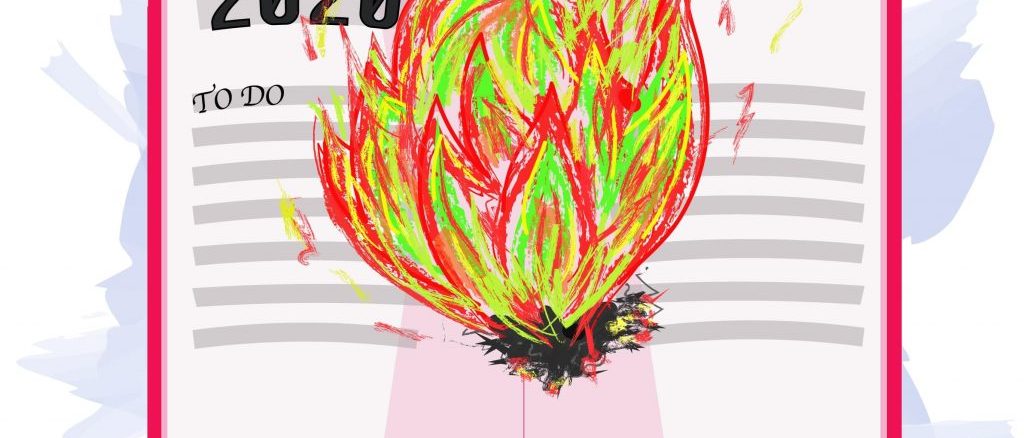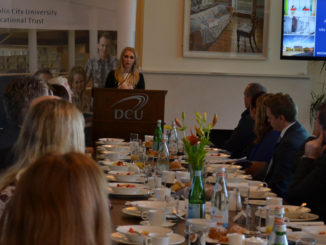
We are almost one month into 2021, and Ireland’s relationship with Covid-19 has been nothing short of tumultuous.
Although the Pfizer vaccine has begun circulation, our country is buckling under the pressure of our third wave. How did we manage to shift from Europe’s shining star to the world’s worst example?
The first case of coronavirus in the Republic of Ireland was confirmed on February 29th. The situation rapidly developed over the following weeks, resulting in then Taoiseach Leo Varadkar delivering the chilling “I need to talk to you about coronavirus” lines from Washington on the March 12th.
The country launched into what Varadkar described as “uncharted territory”.
Thousands of workers began operating from home, schools shut for months and pubs across the country closed their doors. They haven’t opened them since.
We are now into our third lockdown and despite it being just as strict as the first, figures tell us they are worlds apart. As of January 19th 2021, there are 176,839 cases with 2,708 deaths related to Covid-19 in the republic.
The government’s constant cycle of changing plans has received backlash and perhaps contributed to this round of restrictions not working as they did before.
Schools reopened in September 2020 before the government announced they would close again for the month of January. It is looking less likely that they will open in February as cases are still soaring.
Although there is still hope for traditional Leaving Certificate exams in June, it is possible the class of 2021 could suffer the same fate as last year and receive predicted grades from their teachers instead.
President of the Union of Students in Ireland (USI), Lorna Fitzpatrick, told the Irish Times that these students “had the rug pulled from under them.”
Many of these students who began college last autumn have not yet set foot in their new university, let alone met their fellow classmates face to face.
The government also scrapped plans to re-open special schools and classes for children with additional needs on the 21st of January due to health and safety concerns cited by the Irish National Teachers Organisation and Forsa.
Minister for Education Norma Foley said she regretted this decision, which came merely a day before they were set to open.
College students also held hope that their institutions would re-open in not only September 2020 but for 2021 terms also, however under current level five restrictions they are still confined to online, remote learning.
The classes of 2021 could be in the same boat as last year’s graduates and see their ceremony carried out online if our lockdown cycle continues to not only repeat, but worsen.
The infamous Golf-gate event saw up to 82 people, including politicians and a Supreme Court judge gather in spite of restrictions.
Some high profile members of RTÉ apologised in November after they broke restrictions at a farewell party, which “sent shockwaves” through the community according to Liveline presenter Joe Duffy after photos of the event emerged.
There was one thing on everyone’s Christmas list in December – normality. From the beginning of a six-week level five restrictions in October, the plan was to get daily numbers down to 50 per day. The lowest we got was 183 on December 3rd.
However, we were glowing in comparison to Europe and despite NPHET warning against lifting restrictions, the government moved to level three on December 4th.
Restaurants and retail opened along with household visits and cross-county travel allowed for a certain period beginning on December 18th.
Yet this taste of reality quickly became bittersweet, as cases rapidly rose once more. Taoiseach Micháel Martin announced that restaurants would close again on Christmas Eve and non-essential businesses followed suit a week later. Ultimately, the country rang in the new year right back where we started. Level five.
Did the government rush the easing of restrictions to allow people to have a Christmas? Martin defended their decision on Newstalk.
He assured Pat Kenny that he is “not ashamed” of his government’s handling of the virus over the festive season: “We had been in a very prolonged period of restrictions of one kind or the other and coming into the December period we had six weeks of level five.”
Martin challenged the claim that the opening of restaurants and gastro pubs gave the virus the perfect environment to spread, continuing that household visits and people abusing the guidelines gave the virus just as good a chance.
Not to mention the approximate 50,000 people that flew home between December 21st and January 3rd.
The World Health Organisation said the seven-day rolling average per million here in January was 1,394, which is far in excess of that in the UK, at 810. This unwelcome achievement has earned us the reputation for the worst infection rate per million in the world.
Although the Christmas period had an impact on the infection rate in Ireland, many GP’s warned NPHET that some people prolonged the isolation or testing process over Christmas as they feared it would impact their holiday plans.
Chief Medical Officer Dr Tony Holohan said during the week that “there is no group who should feel the public health advice does not apply to them.”
Dr Gabrielle Colleran reiterated this on Twitter. “The roads are too busy. Lockdown 1 was a ghost town with just essential workers. Buzzing on the roads this morning. Our ICU’s are heaving & the impact of the high case numbers last week hasn’t hit them yet due to lag… Stay home.”
Morale has definitely dropped. Nonetheless, everyone must make the effort to keep it up, especially as our healthcare system is heaving under the pressure.
Hospitals can’t keep up with the infection rate and as of 11am on January 19th, the ICU number currently sits at 202.
However, now is not the time for problem pointing. People Before Profit party leader Richard Boyd Barrett announced that the “dire situation” calls for a zero-covid policy.
He said: “The opposition has a responsibility not to just criticise what is clearly a failed government strategy but to offer an alternative.” This would mean mandatory quarantine for travellers, fines for employers unwilling staff to work from home and a harder lockdown until we are completely Covid free.”
The government has previously rejected this due to the border with Northern Ireland. But could it be the only option for our once admirable reputation to bounce back?
Ruth Delaney
Image Credit: Sam O’Neill



